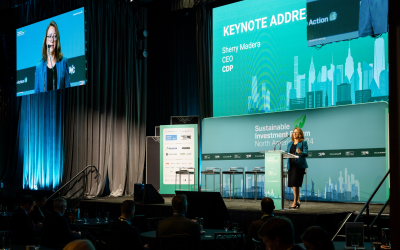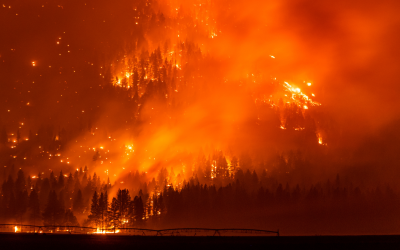Mark Kenber on the threats climate transitions pose to commodity producers and capital providers
Climate Action caught up with Mark Kenber, Managing Director of Orbitas, to discuss the threats climate transitions pose to commodity producers and capital providers.

What is the main takeaway of Orbitas’ research?
Climate transitions present a major challenge to the current system of commodity production based on continuous expansion of agricultural land.
However, for those who respond proactively, there are major opportunities for commodity producers to profit from sustainable approaches to land use.
For instance, Indonesia’s palm growers could see their value grow by US$9 billion and Colombian cattle ranchers could receive payments for carbon sequestration higher than the revenues they make from beef. Climate smart agriculture therefore not only provides insurance against physical and climate transition risks but also offers improved returns for producers and their investors.
What is the major risk for investors and financiers?
Stranded asset risks are as material in the land sector as they are in the energy sector. Emissions costs and their impact on overall production costs will also change the market in ways that investors and financiers need to plan for today. Therefore, investors and financiers need to assess their exposure to tropical commodity value chains in light of the potential impacts of climate transitions. Commodity producers whose strategies are based on clearing more land and whose balance sheets include the value of as yet uncleared forests are likely to be overvalued and represent increased risks to capital providers.
What makes climate transitions in the tropical commodities sector unique?
The tropical commodities sector is unlike the energy sector where information is widely available and production is concentrated in a relatively small number of well-capitalised companies. Tropical commodity production in countries like Colombia, Peru and Indonesia involves millions of actors, from large agroindustrial conglomerates to smallholders farming a few hectares. These smaller producers often do not have access to formal sources of capital and are likely to resist changes that involve increased uncertainty over their future incomes. Therefore, we need to design new mechanisms to make the opportunity of more profitable and sustainable agricultural systems available to smaller producers because of the vital role they play in production and conservation. If they get left behind or left- in developing these new systems we’ve lost before we’ve started.
What is lacking from the financial sector in relation to climate transitions?
Capital providers broadly understand that climate transitions are coming and that they will have impacts on the performance of their investments and loans. However, in agriculture at least, they do not sufficiently analyse their level of exposure or how to capitalize on the new opportunities climate transitions will bring. In the survey we conducted in association with PWC we found that none of the financial institutions we asked were considering the physical or transition risks specific to tropical commodities. These are institutions with considerable capital deployed in these markets but they don’t yet have a plan for how to understand these risks to make better investment decisions.
How serious are the threats of climate transitions?
Stranded assets in Indonesia were no surprise when we conducted our analysis but finding that 76% of unplanted concessions and possibly 15% of current production could be stranded opened our eyes to the severity of this problem. Palm oil makes up nearly 10% of Indonesia’s exports which in turn account for over 50% of the world market. This commodity is a major artery in Indonesia’s growing economy, but deforestation and land-use emissions are responsible for more than 50% of its greenhouse gas emissions. Continued growth is possible and likely under climate transitions, but it will be growth that looks different than we’ve seen before. It’s exciting for those who want to build a smarter strategy of development and avoid the pain of fighting a losing battle against the global imperative of climate action.
Read the latest report from Orbitas here.






